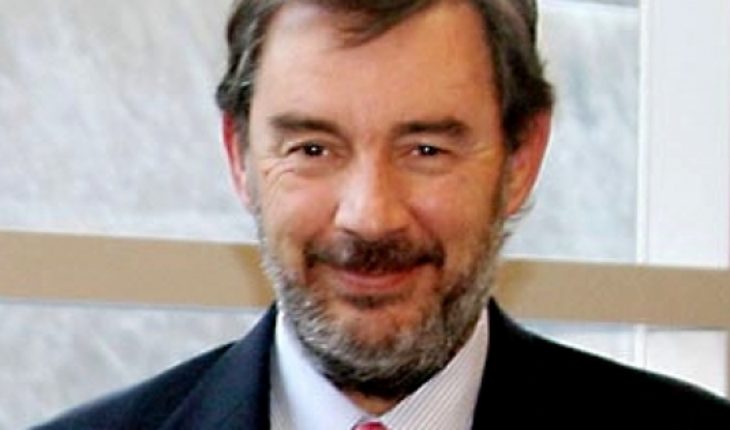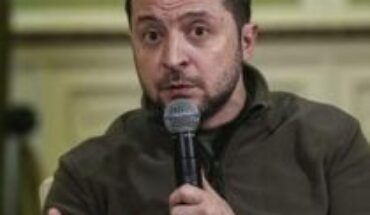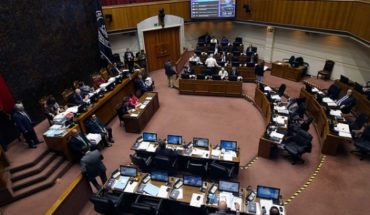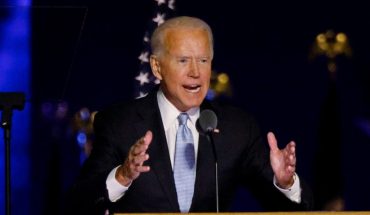Before, long before Sofofa’s advisor Fernando Barros, Pinochet’s former lawyer and advisor to President Sebastián Piñera on tax, said publicly that “it is regrettable that the business world would appear validating COP25”, had sustained several times “encounters” with the helmsman of the trade union organization, Bernardo Larraín Matte.
The episode that left the lawyer swimming in a sealess place after his statements, showed – again – that his figure represents the dissent of the Sofip, the one that sees in Larraín a presidency too “chascona” for the times that run. This, although in disagreement over the COP, nor those who support Barros – such as the entrepreneur Nicolás Ibáñez – were able to support it.
Barros is a director of the Sofofa on behalf of Oxiquim, a firm that presides and has been questioned for pollution in the Quintero-Puchuncaví area. He is also a director of other companies, such as Socovesa and Agrosuper. The company’s guild has been a part of the company’s guild since 2005.
The lawyer starred in a week with high exposure. Coded with the business elite in London, he was part of the group of entrepreneurs who participated in ChileDay. While that was happening, his column in the Financial Journal on the role of the private sector in COP25 sparked a gale. He accused the conference of having little representativeness. Specifically, he said that it was “a meeting in which most of the attendees will be of organizations of at least unknown representativeness and whose discourse is already anticipated as one very contrary to the world of enterprise and the model of economic development, distant from free entrepreneurship and rather promoter of man’s subjugation to the State so that man can protect the environment.”
The answers came from all over. The president of The Sofphis, the CPC president and other union leaders quickly came out to stand out. He seemed to be left alone. The Government and the entrepreneurs were quick to show a different stance from that of the lawyer, who quickly became the symbol – in its Creole version – of deniedclimateism to climate change, giving rise, with this fact alone, to La Moneda to deploy a whole battery of phrases to separate water and convey its concern for the environment. Something like the good cop game and the bad cop.
Then, through a missive, Barros, in an already more moderate version, dropped another missile. He slid that in this crusade he was not alone and that other entrepreneurs applauded him.
While some sources in the business world distinguished in the letter an adjustment of the tone, for many others the bomb had already exploded, by showing a division within the Sofofa. Moreover, the statements poured into the column were interpreted as a direct appeal to the president of the Sofofa, Bernardo Larraín Matte, with whom he has had public encounters, this case being the corollary of several previous “encounters”.
The first encounter was known last year, when the controversial businessman Julio Ponce wanted to return as an advisor to SQM. Sofa questioned him and Barros rode in anger about Larraín Matte’s statements, accusing that he did not have the moral quality to question Ponce’s role at SQM. This came from a company – The Trash, which belongs to his family – that had colluded.
The incident was left behind, but it wasn’t the only one. One of the most recent had to do with the lawyer’s annoyance regarding the guild’s stance on the 40-hour project.
In an interview in The Third, the Sofofofa helmsman recognized the importance of discussing work flexibility. Barros stated that it had been too early a position and that it had been discussed by the media before it was done broadly with the directors. Larraín said, in the face of concerns, that it was about empathy, not supporting the Vallejo’s project.
Barros was in favour of an extraordinary council being held in the guild to address the issue, but in a show of annoyance and power, he decided not to attend it.
In the internal, the versions are diverse. On the one hand, there is a segment that says that there are no times to consult the 120 directors each statement and decision, and that’s what the Executive Committee is for. On the other hand, however, it is noted that Larraín Matte over-customizes the direction of the guild.
In a group chat, Barros had stated that he wanted the 40-hour topic to be debated more deeply and had added a line, pointing out that it was necessary to discuss in more depth the position of Sofofa in COP25.
His comment, however, was a little late. Soffa had actively agreed to participate in the instance and agreed to support funding through a kind of blind trust, i.e. a common fund to which companies contribute and hand resources to the Government. Hence, most of the entrepreneurs participating in the guild were surprised by Barros’ sayings.
While there is a group that agrees that there is a business segment “scared” about the course that decisions can take and that involve limiting their activities by caring for the environment – without this containing a deep scientific basis, as it argues Barros – another segment states that the lawyer’s position has little tother within the Sofofa and that in this case it did not attract popular support. “Nobody’s going to come out with something like that, they know it’s a reputational boomian,” says a counselor.
Taking the debate back to the guild, relatives comment that the above shows some internal division regarding the style of administration that Larraín Matte has and that makes some circles uncomfortable. “Sofopa doesn’t look good when all these kinds of internal debates are aired, it shows an atmosphere of mistrust that hurts the entrepreneur,” says a guild councillor.
However, Soffa is working on a number of aspects to enlist its participation in COP25. Among them, it is a way to convince the Government to include, in the plenary of the summit, topics that it is interested in discussing and also some guests who intend to suggest to the organization of the event.
At the end of the day, they are preparing the presentation of the Chilean business sector that will take place in the pavilion that will represent Chile at the meeting. And the most relevant are the talks that are taking place between the private sector and the Government, against the clock, in order to reach a compromise on CO2 emissions that can be achieved in the medium term.
translated from Spanish: Fernando Barros, Larraín Matte and COP25: how the mess that put entrepreneurs at the center of the environmental debate was put together
September 13, 2019 |





